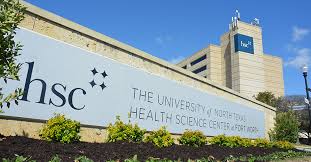Cornyn, Williams Op-Ed: Congress, UNT Health Science Center are Working to Help Texas Rural Health Providers
 Dr. Michael Williams, President of University of North Texas Health Science Center, and I authored the following op-ed in the Fort Worth Star-Telegram on our efforts to promote health in rural Texas communities during the coronavirus pandemic:
Dr. Michael Williams, President of University of North Texas Health Science Center, and I authored the following op-ed in the Fort Worth Star-Telegram on our efforts to promote health in rural Texas communities during the coronavirus pandemic:
Congress, UNT Health Science Center are Working to Help Texas Rural Health Providers
Senator John Cornyn and Dr. Michael Williams
Fort Worth Star-Telegram
August 30, 2020
Rural communities in Texas faced a health care crisis long before COVID-19.
Over the past decade, 21 rural Texas hospitals have closed. Thirty-two counties have no doctor, and an additional 23 have only one. According to the 2018 Rural Health Report Card published by Texas Tech University Health Sciences Center, Texas earns a D-minus overall.
COVID-19 compounded these problems. Small hospitals with limited to no intensive-care capacity have been completely overwhelmed. Doctors, nurses, and EMTs have often needed to quarantine, leaving even fewer medical professionals to care for patients. And urban hospitals where critical patients are typically transferred are reaching capacity.
The pandemic has exacerbated Texas’ rural health crisis and shone a spotlight on the most urgent challenges that must be addressed. Together, we’re fighting for better care, access and outcomes for families in rural communities.
First, we need to ensure rural hospitals can keep their doors open. Congress provided $175 billion to help hospitals, clinics and other providers stay afloat, with at least $11 billion devoted to rural providers.
So far, rural providers in Texas have received more than $720 million. This funding supports resources to keep both patients and health care workers safe today, while maintaining the ability to deliver reliable care tomorrow.
Funding for Texas’ urban hospitals also is a benefit to rural communities. If patients’ needs exceed the capabilities of a small hospital, they’re often transferred to larger facilities in bigger cities. The nearly $4.5 billion Texas’ health care providers have received will help all Texans – regardless of ZIP code –access the care they need, when they need it.
We must also ensure rural hospitals are home to highly trained medical workers – something The University of North Texas Health Science Center (HSC) at Fort Worth is fighting to do.
Since 2010, 110 HSC students have participated as Texas College of Osteopathic Medicine Rural Scholars. On top of their normal curriculum, these students take additional courses to prepare for the unique challenges and opportunities that come with serving rural communities. More than 60 percent of these students are actively practicing in underserved areas, and they’re making quality care a reality for more Texans.
We’re also thinking outside the confines of typical doctor’s appointments. Technology has allowed us to overcome distance barriers in nearly every part of our lives, and health care is no exception. Congress passed legislation allowing rural health centers to utilize telehealth to serve their communities, making long drives or exposure to others a thing of the past for many patients.
In March, HSC transitioned from in-person to virtual care, and it has conducted 8,000 telemedicine appointments in specialties including family medicine, pediatrics, geriatrics, cardiology, and dermatology. This ensured HSC’s patients could continue receiving the high-quality care they needed despite the obstacles presented by COVID-19.
But nearly one-third of rural Texans can’t access reliable internet services, precluding them from not only telemedicine, but also virtual learning and working. Broadband access is no longer a luxury, it’s a necessity – and we need to ensure rural Texans aren’t left on the wrong side of the digital divide.
Congress provided hundreds of millions of dollars to help both providers and patients have access to the broadband and equipment they need to get connected. Legislation recently introduced by Senator Cornyn would triple the investment already made in telehealth, with at least $80 million going to small and rural providers.
A person’s home address should never determine the outcome of a health condition. Whether they’re battling COVID-19, cancer, or a heart problem, every single Texan deserves access to quality health care, and that’s what we’re fighting to deliver.
John Cornyn is Texas’ senior U.S. senator. Dr. Michael Williams is an anesthesiologist and President of UNT Health Science Center.








